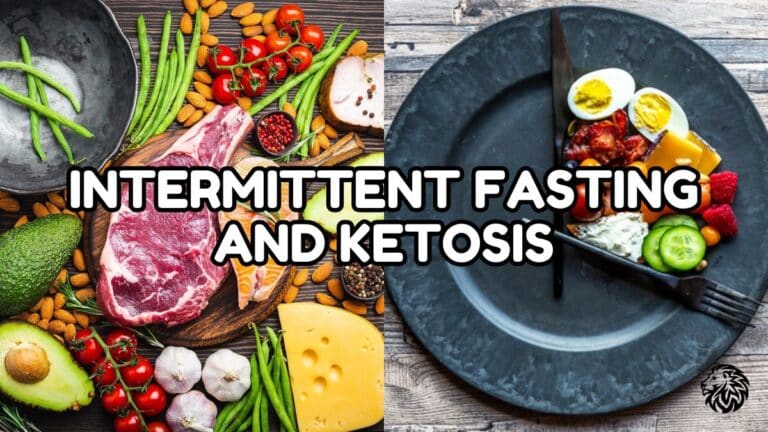Intermittent fasting has become a buzzword in the realm of health and wellness, capturing the attention of fitness enthusiasts, dieticians, and individuals looking to enhance their overall well-being. At its core, intermittent fasting is not about what you eat, but rather when you eat. It involves cycling between periods of eating and fasting, with the latter often ranging from 16 hours to a full day. This approach to eating has been hailed for its potential benefits, which include weight loss, improved mental clarity, and even longevity.
The concept of intermittent fasting is rooted in historical practices and is often linked to traditional fasting rituals observed across various cultures. In recent years, however, it has gained a modern twist, becoming a popular lifestyle choice for those seeking to optimize their health and body composition. Amidst its rising popularity, one of the most intriguing claims about intermittent fasting is its supposed ability to boost metabolism.
The metabolism is essentially the engine of the body, a complex process where calories from food and drink are converted into energy. A faster or more efficient metabolism is often equated with better health and easier weight management. As such, the tantalizing prospect that intermittent fasting could rev up this metabolic engine has sparked widespread interest and debate.
This article delves into the heart of the matter: Does intermittent fasting truly boost your metabolism? By examining scientific research, expert opinions, and physiological mechanisms, we aim to unravel this question and provide insights into how intermittent fasting impacts the body’s metabolic processes.
Understanding Metabolism

Metabolism is a vital biological process that refers to all the chemical reactions occurring in the body to convert food and beverages into energy. This intricate system is constantly active, ensuring that our bodies have enough energy to perform basic functions like breathing, circulating blood, and cell repair, even when at rest. This basal metabolic rate (BMR) accounts for the majority of our daily energy expenditure.
Metabolism works in two primary phases: catabolism and anabolism. Catabolism is the process of breaking down molecules to produce energy, while anabolism is the process of using this energy to construct components of cells, such as proteins and nucleic acids. These phases work in tandem to keep our bodies functioning optimally and to regulate our energy levels in response to our activities and diet.
Several factors typically influence the metabolic rate, and they play a crucial role in determining how quickly and efficiently our bodies can convert food into energy:
- Age: Metabolic rate tends to slow down as we age. This slowdown is partially due to a loss of muscle mass and changes in hormonal and neurological processes as we grow older.
- Muscle Mass: Muscle tissue is more metabolically active than fat tissue. Therefore, individuals with more muscle mass generally have a higher BMR, meaning they burn more calories at rest compared to those with a higher proportion of body fat.
- Physical Activity: Regular exercise, especially strength training, can increase muscle mass, which in turn boosts BMR. Aerobic exercise, although not as effective at building muscle, increases the total calories burned in a day.
- Gender: Generally, men have a higher metabolic rate than women, largely due to having more muscle mass, larger bones, and less body fat.
- Hormones and Endocrine Function: Hormones such as thyroid hormones play a significant role in regulating metabolic rate. Imbalances in these hormones can lead to metabolic disorders.
- Genetic Factors: Genetics also play a role in determining metabolic rate, influencing how quickly the body processes and converts energy.
Understanding these factors is crucial in addressing the main question of whether intermittent fasting can influence metabolic rate. It sets the stage for exploring how this eating pattern might interact with these variables to potentially enhance or modify metabolic processes.
Overview of Intermittent Fasting

Intermittent fasting (IF) is a dietary approach that alternates between periods of eating and fasting. Unlike traditional diets that focus on what to eat, IF concentrates on when to eat. This method has gained significant traction due to its simplicity and the purported health benefits. Here are some of the most popular methods of intermittent fasting:
- The 16/8 Method (Leangains Protocol): This method involves fasting for 16 hours each day and eating all meals within an 8-hour window. For example, if you finish dinner at 8 PM, your next meal would be at 12 PM the following day.
- The 5:2 Method (Fast Diet): In this approach, you eat normally for five days of the week and restrict calorie intake to about 500-600 calories on the other two days, which should be non-consecutive.
- Eat-Stop-Eat: This involves a 24-hour fast once or twice a week. For instance, not eating from dinner one day until dinner the next day.
- Alternate-Day Fasting: This method requires fasting every other day. Some variations allow for a few hundred calories on fasting days.
- The Warrior Diet: This involves eating small amounts of raw fruits and vegetables during the day and a single, large meal at night, typically within a 4-hour eating window.
Each of these methods has its unique pattern and flexibility, catering to different lifestyles and preferences.
Primary Objectives and Claimed Benefits:
Proponents of intermittent fasting claim a variety of health benefits, some of which are supported by emerging scientific research:
- Weight Loss and Fat Reduction: One of the most sought-after benefits of IF is weight loss. The fasting periods naturally lead to reduced calorie intake, while the hormonal changes from fasting are believed to facilitate weight loss and fat burning.
- Improved Insulin Sensitivity: IF is said to improve insulin sensitivity, reducing the risk of type 2 diabetes by lowering blood sugar levels.
- Enhanced Brain Health: Some studies suggest that IF can improve brain health and may protect against neurodegenerative diseases like Alzheimer’s.
- Increased Longevity: Animal studies have indicated that IF may lead to a longer lifespan, although more research is needed in humans.
- Improved Heart Health: IF might improve various risk factors for heart disease, such as blood pressure, cholesterol levels, triglycerides, and inflammatory markers.
- Mental Clarity and Cognitive Function: Many practitioners of IF report heightened mental clarity and focus during fasting periods, although this is subjective and can vary.
While these benefits are promising, it is important to note that intermittent fasting may not be suitable for everyone, and individual experiences can vary. Consulting with healthcare professionals before starting any new diet, especially one involving fasting, is always recommended.
Intermittent Fasting and Metabolism

The relationship between intermittent fasting (IF) and metabolism is a subject of considerable interest in the scientific community. Numerous studies have examined how IF impacts the body’s metabolic processes, including energy usage and fat burning. Here’s an overview of the research findings and theoretical mechanisms involved:
- Impact on Metabolic Rate:
- Some research suggests that short-term intermittent fasting may temporarily increase metabolic rate. This is possibly due to an increase in norepinephrine, a neurotransmitter, which enhances fat burning.
- However, long-term fasting or severe calorie restriction can have the opposite effect, potentially slowing down metabolism. This adaptive response, known as “starvation mode,” is the body’s way of conserving energy during perceived famine.
- Changes in Hormone Levels Affecting Metabolism:
- Insulin: IF has been shown to improve insulin sensitivity, which can enhance the body’s ability to use sugar from carbohydrates more effectively for energy.
- Human Growth Hormone (HGH): Fasting can increase levels of HGH significantly, which aids in fat loss and muscle gain.
- Norepinephrine: As mentioned, fasting triggers a rise in norepinephrine, which facilitates fat breakdown and its use for energy.
- Shift to Fat Burning:
- During fasting periods, once the body’s glucose and glycogen stores are depleted, it shifts to burning fat for energy, a process known as ketosis. This shift can aid in fat loss and may improve metabolic health.
- Enhanced Cellular Repair Processes:
- IF activates cellular repair processes, such as autophagy, where cells remove dysfunctional components. Enhanced autophagy is beneficial for maintaining metabolic health.
- Effects on Muscle Mass:
- There is a concern that fasting might lead to muscle loss, which can decrease metabolic rate. However, some studies suggest that IF, especially when combined with resistance training, may preserve muscle mass better than regular calorie restriction.
- Differences Based on Fasting Duration and Frequency:
- The metabolic effects of IF can vary based on the fasting protocol (e.g., 16/8 vs. alternate-day fasting) and individual factors like age, sex, and baseline metabolic rate.
- Potential for Improved Energy Efficiency:
- Some evidence suggests that IF might improve mitochondrial efficiency, making the body’s cells more efficient in energy production.
It’s important to note that while these findings are promising, more extensive and long-term studies are needed to fully understand the impact of IF on metabolism. Moreover, individual responses can vary widely based on genetic, lifestyle, and environmental factors. As with any dietary change, it’s recommended to approach IF cautiously and under the guidance of a healthcare professional, especially for individuals with existing health conditions or specific nutritional needs.
Counterpoints and Criticisms

While intermittent fasting (IF) has been praised for its potential benefits, it is not without its critics and skeptics, especially concerning its impact on metabolism and overall health. Below are some of the common criticisms and concerns, along with expert opinions and research findings that challenge the effectiveness of IF:
- Potential for Muscle Loss:
- A significant concern with any fasting or calorie-restriction diet is the loss of muscle mass, which can negatively affect metabolism. Critics argue that prolonged fasting periods might lead the body to use muscle protein for energy, especially if the diet is not adequately planned.
- Some studies suggest that muscle loss can occur if fasting is combined with inadequate protein intake and a lack of resistance training.
- Effects on Blood Sugar Levels:
- While IF can improve insulin sensitivity in some, there are concerns about its impact on blood sugar regulation, particularly for individuals with diabetes or prediabetes. Fluctuations in blood sugar levels during fasting periods can pose risks for these individuals.
- Experts caution that IF may not be suitable for people with certain medical conditions requiring regular food intake.
- Impact on Women’s Health:
- Some studies indicate that IF could have different effects on women, potentially impacting menstrual cycles and fertility. There is a suggestion that fasting might exacerbate conditions like polycystic ovary syndrome (PCOS).
- Experts advise that women, especially those trying to conceive, pregnant, or breastfeeding, should approach IF cautiously.
- Mental Health and Eating Disorders:
- There is a concern that IF can trigger disordered eating patterns in susceptible individuals. The strict eating and fasting windows can contribute to an unhealthy relationship with food.
- Mental health professionals sometimes express concerns about the rigidity of IF and its potential impact on individuals with a history of eating disorders.
- Sustainability and Long-Term Effects:
- Critics argue that IF may be difficult to maintain in the long term, which is crucial for any effective and healthy dietary change.
- The long-term effects of IF are still not well understood, and more research is needed to establish its safety and efficacy over extended periods.
- Contradictory Research Findings:
- While some studies show positive metabolic changes due to IF, others have not found significant differences in weight loss or metabolic rate compared to traditional calorie-restricted diets.
- Some experts argue that the benefits of IF are primarily due to overall calorie reduction rather than the fasting process itself.
- Variability in Individual Responses:
- There is considerable variability in how individuals respond to IF. Factors like age, sex, genetic predisposition, lifestyle, and overall health can significantly influence the outcomes and effectiveness of IF.
Given these criticisms and the mixed research findings, many health professionals recommend a personalized approach to diet and nutrition. They emphasize the importance of considering individual health needs and lifestyle factors when deciding whether IF is an appropriate choice. Additionally, it’s crucial for individuals to consult healthcare professionals before starting any new dietary regimen, particularly one that involves significant changes to eating patterns like IF.
Personal Factors and Considerations

When considering intermittent fasting (IF) and its impact on metabolism, it’s essential to recognize the significant role of individual differences. The effectiveness and safety of IF can vary greatly from person to person, influenced by a myriad of factors such as genetics, lifestyle, and health status. Here are some key considerations for specific groups:
- People with Diabetes:
- For individuals with diabetes, particularly type 1 diabetes, IF can be risky due to the potential for hypoglycemia (low blood sugar levels) during fasting periods.
- Those with type 2 diabetes might see improvements in blood sugar control and insulin sensitivity, but this must be closely monitored, ideally under medical supervision.
- Pregnant and Breastfeeding Women:
- Pregnancy and breastfeeding are periods of increased nutritional demand. IF is generally not recommended during these times as it could compromise nutrient intake for both the mother and the developing baby or infant.
- Fluctuations in blood sugar and energy levels due to fasting could also negatively affect maternal and fetal health.
- Athletes and Highly Active Individuals:
- Athletes have higher energy and nutrient requirements due to their intensive training regimens. IF could potentially interfere with energy availability, recovery, and performance.
- However, some athletes might find that IF fits into their training schedule without adverse effects. This highly depends on the timing and intensity of their training sessions and individual responses to fasting.
- Individuals with a History of Eating Disorders:
- IF can be triggering for individuals with a history of eating disorders. The restrictive nature of the diet might exacerbate unhealthy eating patterns and attitudes towards food.
- It’s crucial for these individuals to seek guidance from mental health professionals before considering any form of diet that involves fasting.
- Older Adults:
- Older adults often have different nutritional needs due to changes in metabolism, muscle mass, and overall health. They might be more susceptible to muscle loss and nutrient deficiencies.
- IF could be challenging for this group, especially for those with chronic health conditions or those taking medications requiring food intake.
- People with Specific Health Conditions:
- Individuals with certain medical conditions, such as heart disease, kidney disorders, or gastrointestinal issues, should approach IF with caution. The fasting periods could exacerbate some conditions or interfere with medications.
- Always consult with healthcare providers before starting IF when dealing with any health issues.
- Genetic and Metabolic Differences:
- Genetic predispositions can affect how one’s body reacts to IF. Some people might experience significant benefits, while others may see little to no effect.
- Metabolic rates and how the body processes and stores energy can also vary, influencing the effectiveness of IF.
While IF can offer potential health benefits, it’s not a one-size-fits-all solution. The decision to adopt IF should be made on an individual basis, considering personal health status, lifestyle, and specific needs. Consulting with healthcare professionals, including dietitians and doctors, can provide personalized advice and ensure that any dietary change is safe and beneficial.
Complementary Practices to Boost Metabolism

Apart from intermittent fasting, there are several other methods and lifestyle changes that can effectively boost metabolism. Incorporating these practices can enhance overall metabolic health and contribute to a more balanced and holistic approach to well-being:
- Strength Training and Exercise:
- Engaging in regular strength training helps build muscle mass, which is more metabolically active than fat tissue. This means even at rest, more calories are burned.
- Aerobic exercises, such as running, swimming, or cycling, also boost metabolism in the short term by increasing heart rate and energy expenditure.
- Balanced Diet Rich in Protein:
- Eating a diet rich in protein can increase the Thermic Effect of Food (TEF), which is the energy required to digest, absorb, and process nutrients, thus boosting metabolism.
- Protein-rich foods also contribute to satiety and can help in maintaining muscle mass, especially important during weight loss.
- Adequate Sleep:
- Lack of sleep can negatively affect metabolism and is linked to increased risk of obesity and type 2 diabetes. Ensuring sufficient and quality sleep is essential for maintaining a healthy metabolic rate.
- Establishing a regular sleep routine and creating a sleep-friendly environment can enhance sleep quality.
- Hydration and Green Tea:
- Drinking enough water is crucial for a well-functioning metabolism. Cold water may also increase metabolism temporarily, as the body uses energy to heat it to body temperature.
- Green tea and oolong tea are known for their metabolism-boosting properties. They are thought to increase energy expenditure and fat oxidation.
- Managing Stress:
- Chronic stress can negatively impact metabolism. It can lead to hormonal imbalances that favor fat storage and increase appetite.
- Practices like meditation, yoga, and mindfulness can be effective in managing stress.
- Eating Small, Frequent Meals:
- Eating small, frequent meals throughout the day can keep the metabolism active, as opposed to large, infrequent meals which can slow it down.
- This approach can help maintain steady blood sugar levels and reduce hunger pangs.
- Avoiding Crash Diets:
- Sudden, extreme calorie restriction can decrease metabolic rate as the body adapts to conserve energy. It’s healthier to lose weight gradually and sustainably.
- Spicy Foods:
- Some studies suggest that spicy foods can temporarily increase metabolism. Capsaicin, found in chili peppers, is responsible for this effect.
- Getting Enough Vitamin D and Calcium:
- Adequate levels of Vitamin D and calcium can support metabolic health. They play roles in energy processing and may aid in weight management.
- Regular Medical Check-Ups:
- Regular check-ups can help identify and treat any underlying issues that may be affecting metabolism, such as thyroid disorders.
Incorporating these practices into daily life, along with intermittent fasting or other dietary approaches, can create a well-rounded strategy for boosting metabolism and improving overall health. It’s important to adopt a balanced approach, tailoring these methods to individual preferences, lifestyles, and health conditions.
Conclusion
Intermittent fasting (IF) has garnered significant interest as a method for improving health, particularly in the context of boosting metabolism. This article has explored various facets of IF, its potential effects on metabolic processes, and the factors influencing its effectiveness.
Key Points:
- Intermittent Fasting Methods: We discussed popular IF methods, including the 16/8 method, 5:2 method, and others, highlighting their flexibility and adaptability to different lifestyles.
- Metabolism and Its Influencers: Understanding metabolism — how it works and what influences it (like age, muscle mass, and physical activity) — is crucial in comprehending how IF might impact it.
- Effects of IF on Metabolism: Research indicates that IF can potentially boost metabolism by influencing hormonal levels, enhancing fat burning, and improving insulin sensitivity. However, these effects can vary widely among individuals.
- Criticisms and Counterpoints: Despite its potential benefits, IF is not without criticism. Concerns include the risk of muscle loss, negative impacts on blood sugar levels, and sustainability issues, among others.
- Individual Considerations: IF’s effectiveness and safety can differ based on individual factors, such as underlying health conditions, lifestyle, and dietary needs. Special consideration is necessary for groups like people with diabetes, pregnant women, and athletes.
- Complementary Practices: Boosting metabolism can also be achieved through complementary practices such as strength training, a balanced diet, adequate hydration, and proper sleep.
Balanced View on IF and Metabolism:
Based on current evidence, IF shows promise as a tool for enhancing metabolic health, particularly in terms of weight management and fat burning. However, its effectiveness is not uniform across all individuals, and long-term impacts are still a subject of ongoing research. The potential benefits must be weighed against possible risks or downsides, especially for certain groups or individuals with specific health conditions.
It’s imperative for readers to understand that while IF can be a part of a healthy lifestyle, it is not a panacea for all metabolic issues. The decision to practice IF should be made with a holistic view of one’s health and lifestyle. Consulting healthcare professionals is crucial before embarking on IF or making significant changes to diet or fasting routines. Such guidance ensures that any dietary approach adopted is safe, suitable, and beneficial for the individual’s unique health needs and goals.
In conclusion, while IF offers an intriguing approach to enhancing metabolic health, it is part of a broader spectrum of lifestyle choices and practices that contribute to overall well-being. Embracing a balanced, informed perspective is essential for anyone looking to improve their metabolic health through diet and lifestyle changes.
Frequently Asked Questions About Intermittent Fasting and Metabolism
- Q: Can intermittent fasting lead to long-term metabolic changes?
- A: While intermittent fasting can impact metabolism, such as by improving insulin sensitivity and potentially increasing metabolic rate, the long-term effects are still under research. Individual responses can vary greatly.
- Q: Is intermittent fasting safe for everyone?
- A: Intermittent fasting is not suitable for everyone. It’s generally not recommended for pregnant women, individuals with diabetes, those with a history of eating disorders, and certain other health conditions. Always consult a healthcare provider before starting.
- Q: How does intermittent fasting affect muscle mass?
- A: There’s a concern that intermittent fasting, especially if not properly managed, could lead to muscle loss. However, incorporating strength training and adequate protein intake can help preserve muscle mass.
- Q: Can intermittent fasting improve brain function?
- A: Some studies suggest intermittent fasting may have benefits for brain health, potentially improving cognitive function and offering protection against neurodegenerative diseases, though more research is needed.
- Q: Is it necessary to combine exercise with intermittent fasting?
- A: Combining exercise with intermittent fasting can enhance health benefits, such as better weight management and increased muscle mass, but it’s not strictly necessary for everyone. It depends on individual health goals and conditions.
- Q: How quickly can one see results from intermittent fasting?
- A: The timeline for seeing results from intermittent fasting varies widely among individuals, depending on factors like the fasting schedule, dietary habits, and physical activity levels. Some may notice changes in a few weeks, while for others it may take longer.
- Q: Are there any particular foods recommended during intermittent fasting?
- A: During eating windows, it’s advised to consume a balanced diet rich in nutrients, including proteins, healthy fats, whole grains, fruits, and vegetables. Avoiding processed and high-sugar foods can enhance the benefits of intermittent fasting.
- Q: Can intermittent fasting affect my sleep?
- A: Intermittent fasting may affect sleep patterns in some individuals, either positively or negatively. It’s important to monitor sleep quality and adjust eating windows or dietary choices if sleep disturbances occur.
References and Further Reading
- Johns Hopkins Medicine. (n.d.). Intermittent fasting: What is it, and how does it work? Retrieved from https://www.hopkinsmedicine.org/health/wellness-and-prevention/intermittent-fasting-what-is-it-and-how-does-it-work
- Link, R. (n.d.). Intermittent fasting 101 — The ultimate beginner’s guide. Healthline. Retrieved from https://www.healthline.com/nutrition/intermittent-fasting-guide
- Mayo Clinic Staff. (n.d.). Intermittent fasting: Does it have health benefits? Mayo Clinic. Retrieved from https://www.mayoclinic.org/healthy-lifestyle/nutrition-and-healthy-eating/expert-answers/intermittent-fasting/faq-20441303
- Fung, J. (2018, June 29). Intermittent fasting: Surprising update. Harvard Health Blog. Retrieved from https://www.health.harvard.edu/blog/intermittent-fasting-surprising-update-2018062914156
- Link, R. (n.d.). What is intermittent fasting? Explained in human terms. Healthline. Retrieved from https://www.healthline.com/nutrition/what-is-intermittent-fasting
- Palsdottir, H. (n.d.). Intermittent fasting: A detailed guide. Medical News Today. Retrieved from https://www.medicalnewstoday.com/articles/322293
- WebMD. (n.d.). Intermittent fasting. Retrieved from https://www.webmd.com/diet/a-z/intermittent-fasting
- Mattson, M. P., Longo, V. D., & Harvie, M. (2017). Impact of intermittent fasting on health and disease processes. Ageing Research Reviews, 39, 46-58. Retrieved from https://www.ncbi.nlm.nih.gov/pmc/articles/PMC3680567/







